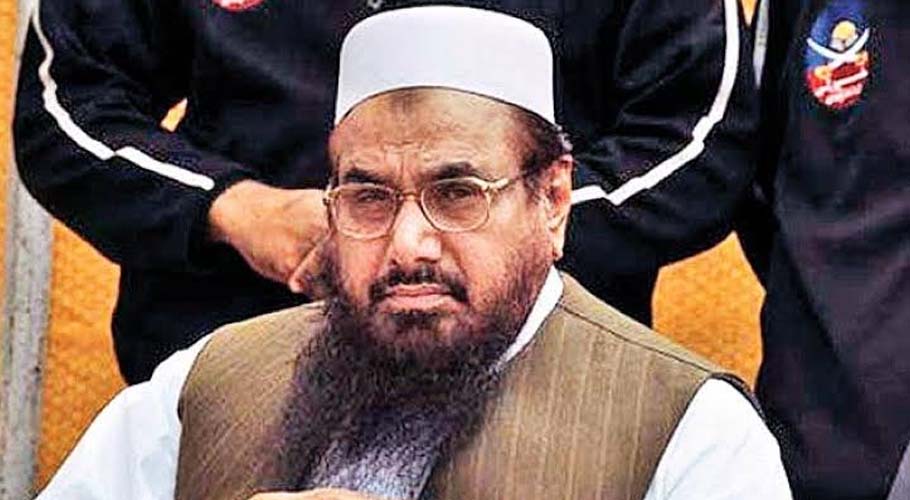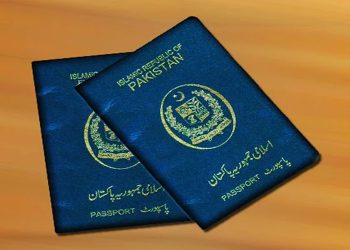ISLAMABAD: An anti-terrorism court (ATC) in Lahore sentenced Jamat-ud-Dawa leader Hafiz Saeed to five and a half years imprisonment in a terror financing case.
The court has also imposed a fine of Rs110,000 and ordered the confiscation of his properties. Saeed’s lawyer Imran Fazal Gill told a news agency that an anti-terrorism court in Lahore sentenced ten-and-a-half years imprisonment to the chief of Jamatud Dawa Hafiz Saeed, his deputy Zafar Iqbal and spokesman Yahya Mujahid on charges of terror financing.
He said that since Saeed has already been convicted in February, the punishment awarded to him in shall also run concurrently with these cases. He said appeals have been filed against the previous sentences.
Saeed is already serving two sentences of five-and-a-half-years each handed down to him in February this year. JuD leader Malik Zafar Iqbal was also awarded a similar sentence. The case against was filed by the Counter-Terrorism Department last year.
Last week, the ATC had sentenced three other JuD leaders to imprisonment, including Zafar Iqbal, Yahya Muhajid, and Hafiz Abdul Rehman Makki for illegal funding. Malik Zafar Iqbal and Yahya Mujahid were ordered to spend 16 years in prison, while Makki was awarded a six-month imprisonment sentence.
Earlier this year, the ATC had announced a collective punishment of 11 years and imposed a fine of Rs 15,000 on the JuD chief for being part of a banned terrorist outfit and for having illegal property. He was given five years and six months in each case and the court had stated that both the sentences would begin concurrently.
The cases against the JuD chief were led by Deputy Prosecutor General Abdul Rauf Watto, while around 23 witnesses recorded their statements in the cases.
In July last year, Saeed was arrested by Punjab’s Counter-Terrorism Department (CTD) while he was travelling to Gujranwala from Lahore to appear before an anti-terrorism court to seek pre-arrest bail.
The conviction comes as Pakistan tries to avoid punitive blacklisting by the Financial Action Task Force (FATF) which tackles financing to terror organisations. Pakistan has remained on the “grey list” since 2018.
In FATF’s last review in October, Pakistan was urged to complete an internationally agreed action plan by February 2021 and to demonstrate that terrorism financing probes resulted in effective sanctions.




































